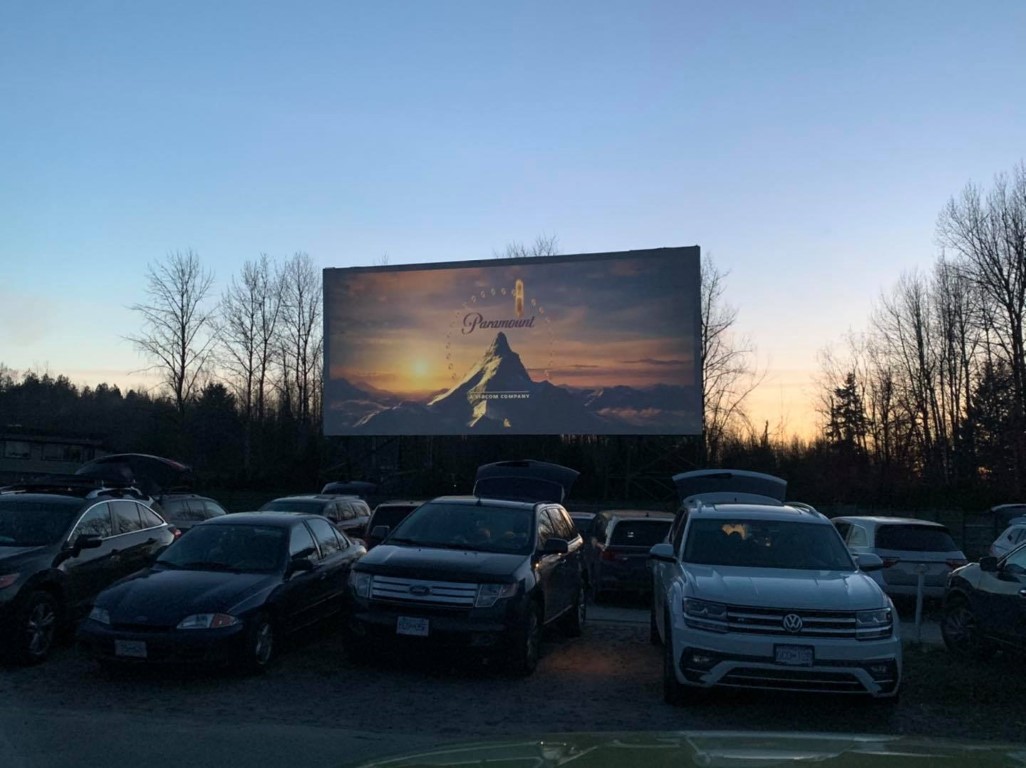
The Twilight Drive-In Theatre creates petition to save business
By Brandon Yip, Senior Columnist
The term “drive-in” to today’s youth may be interpreted by some as meaning to “drive into” a drive thru at Wendy’s, Starbucks, A&W, Burger King, or McDonald’s. However, to the generation who lived during the 1950s, drive-in theatres were the norm. For the generation of today, watching Netflix at home due to COVID-19 is their current norm.
In its heyday, teenagers and adults drove to the local drive-in theatre and found a suitable spot to park and watch a movie. The Twilight Drive-In theatre located in Langley on 260th Street and Fraser Highway is the last remaining drive-in theatre in Metro Vancouver. The theatre remains a notable relic from a bygone era. The theatre first opened in September 2005, and it operates seasonally beginning late winter and stopping in late fall.
The theatre, when open, was adhering to the COVID-19 pandemic guidelines and made strict changes to encourage patrons to abide to social distancing rules. Gates were opened roughly 45 minutes prior to the first show and 30 minutes before the start of the second show. Other restrictions implemented were that only one car was allowed per 20-foot stall (between the poles that usually holds two vehicles). Furthermore, no walk-ins were allowed. As well, the concession stand was open but only 15 people were allowed inside at peak times. In addition, the men’s and women’s washrooms were each limited to eight people at a time—customers are asked to wait outside two metres apart from others. However, the theatre recommended that people use the washrooms when the movie is showing—as the washrooms are typically empty at that point. On their official website, the theatre states, “If you feel ill or were outside of Canada 14 days ago or less, please stay home!”
On May 25, Global News reported that Provincial Health Officer Dr. Bonnie Henry and Health Minister Adrian Dix stated an order that restricted mass gatherings to a limit of 50 people was “amended to also include no more than 50 vehicles for outdoor drive-in events, with a restriction on the sale of refreshments.” Yet, the management at the Twilight does not believe those restrictions are fair. In a Facebook post on the theatre’s group page, a post clarifies that they feel it is unfair considering that they were allowed to operate during Phase 1, “the worst part of the pandemic” with social distancing measures, but now during the restart phase, they are restricted. The post also mentions that other drive-ins across Canada (for example Ontario) are allowed to open now with similar restrictions to what Twilight had in place when they were operating. The theatre was closed on May 26; owner Jay Daulat told the Aldergrove Star that “We decided to close while we appeal for a health ministry exemption.” Notably, an online petition has grown to 25,028 signatures (as of May 31) asking the health authority to allow the Twilight to have more than 50 cars in their lot along with an open concession.
The management of the Twilight declined to be interviewed, stating in an email to the Other Press on May 16, “Sorry, we aren’t taking media requests, thx.” Instead, a Facebook post from the owners on March 13 states, “We have always prided ourselves in operating a clean facility. We plan to continue these procedures and do even more in light of the COVID-19. We will have hand sanitizer publicly available in the concession. We will be disinfecting all surfaces that touch peoples’ hand throughout the evening. As always, we require all staff to frequently and thoroughly wash their hands, and to stay home if they feel ill. We ask our guests to do the same.”
Despite the reduced capacity due to the pandemic, the Twilight Drive-In Theatre provides the perfect environment for people to enjoy themselves watching a film in their vehicles while maintaining proper social distancing. Significantly, modern state-of-the-art theatres are still closed due to COVID-19. But an outdated relic such as a ‘50s drive-in theatre remains in demand—proving that it still has a place in today’s culture and should be protected.

